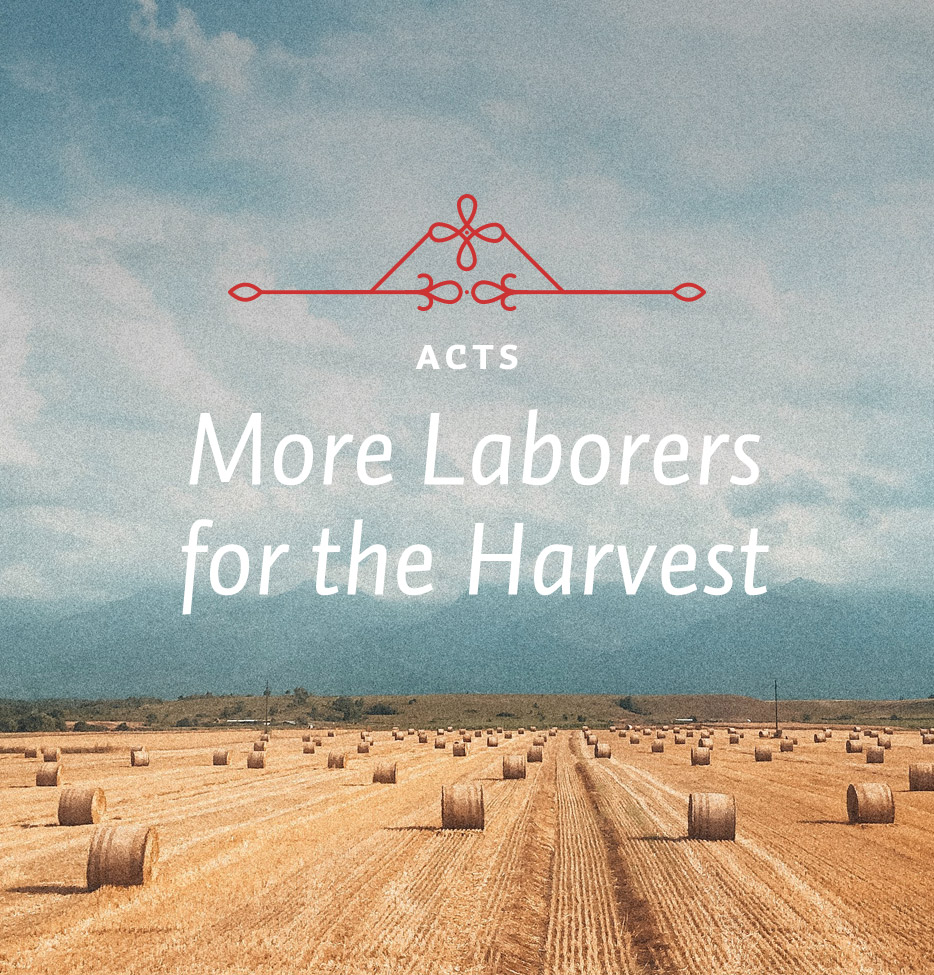Priscilla and Aquila were what we would call “working people.” They were tentmakers, which probably means that they worked in leather since tents were usually made of skins. They were not from the upper classes, certainly. They were probably not particularly well educated. In addition, we know that they were Jews, and had been living in Rome. But when the Emperor Claudius issued his well-known edict banishing the Jews from Rome, Priscilla and Aquila left the capital of the empire and went to Corinth.1
When Paul wrote to the Romans, which he did from Corinth on the second missionary journey, he said (in the sixteenth chapter) that he wanted those at Rome to greet Priscilla and Aquila, which means that sometime during the year and a half he spent in Corinth, Priscilla and Aquila must have left Corinth and gone back to Rome, probably because the edict of Claudius had been lifted. Maybe all they did was wrap up their affairs in that city, since they apparently came back to Corinth rather quickly. In the passage we are studying, they were present to accompany Paul to Ephesus when he left Corinth at the end of his ministry there.
Here was a couple which, though they had no particular status in the Roman world and no exceptional education, were nevertheless active Christian people. And they were mobile! They traveled with Paul and were helpful to him in his ministry—not only now but also later, as we will see. They seem to have been willing to relocate for the sake of the growing, infant church.
We learn some interesting things about this couple from the scattered references to them in the New Testament. Already in this chapter (v. 3) we have found that Paul lived with them when he was at Corinth. He had come to Corinth from Macedonia and at that point had run out of money. Churches had helped him along the way. Yet when he got to Corinth he had no money; he had to work, which he was quite willing to do. So he teamed up with Priscilla and Aquila, who had the same trade he did. This couple opened their house to Paul and labored with him, not only in their mutual trade of tentmaking, but also in the Gospel. Undoubtedly they learned a great deal from him during the time they lived together in that city.
In Romans 16 Paul says something else about them that is worth noting: “They risked their lives for me” (v. 4). We do not know what that refers to. Nothing in Acts relates to it, although, since Paul wrote Romans from Corinth, we presume that he is referring to something that happened in that city. There must have been an occasion on which the Jews tried to make trouble, though this does not seem to have affected Paul directly. How wonderful that when Paul was perhaps a bit down and discouraged, being in financial need and having left his co-workers Timothy, Titus and others behind as he came on to Athens and then Corinth, God provided a wonderful couple, who were willing even to risk their lives for him.
When they got to Ephesus, Priscilla and Aquila apparently established themselves in a home where they would have conducted their business and where they eventually had the church meet. In 1 Corinthians 16:19, where Paul is again giving greetings, he says that Aquila and Priscilla send greetings, adding, “and so does the church that meets in their house.” So we have an indication that this remarkable couple were not only co-workers with Paul, but also hosted the church and were thus serviceable in the ministry.
These verses also tell about Apollos. Apollos was quite different from Aquila and Priscilla. Aquila and Priscilla were Jews. He was a Gentile. They were a married couple. He was single. They were working people. He was an intellectual. They came from Rome, the capital of the empire. He came from Alexandria in Egypt. Alexandria was a center of learning, like Athens, but more serious in its scholarship. Alexandria was the city of Philo, the great Jewish philosopher who was well-versed, not only in the Greek philosophy of the day, but also in the Old Testament and who interpreted much of the Old Testament in Greek terms. Since Apollos had been educated in Alexandria, it is tempting to think that he probably knew Philo, though nothing in the New Testament tells us that directly.
1The edict of Claudius is the first reference in nonbiblical literature of the presence of Christians in Rome. Suetonius, the Roman historian, says in reporting on the activities of Claudius, “Since the Jews constantly made disturbances at the instigation of Chrestus, he expelled them from Rome” (Suetonius, vol. 2, trans. by J. C. Rolfe, Loeb Classical Library [Cambridge, MA: Harvard University Press, 1965], 53). Who was Chrestus? Chrestus could be somebody we have never heard of and do not know anything about. But the general feeling among scholars is that Suetonius probably confused the name Chrestus with Christ. If that is the case, the words of Suetonius seem to indicate that he knew that at this time there was trouble in the Jewish community in Rome centered around this person. This is probable for other reasons also, because later, when Paul himself got to Rome, he tells us that he experienced mistreatment as a result of similar disturbances (Phil. 1:15-18).






